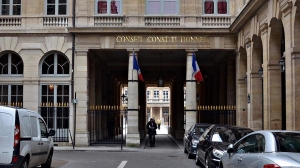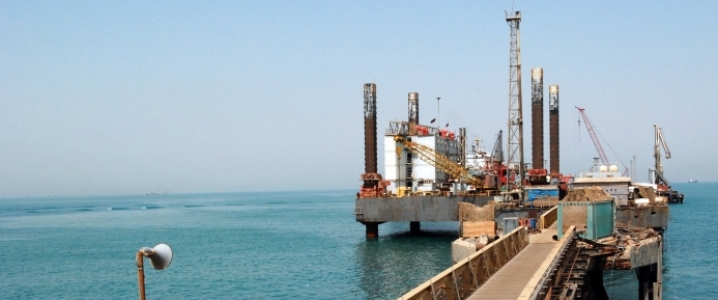Tol, 26 January 2017
Since Uzbekistan’s new leader Shavkat Mirziyoyev (pictured) came to power last fall, his every move has been scrutinized as a possible harbinger either of reform or backsliding to the iron-fisted methods of his predecessor, Islam Karimov.
Travel both into and out of the isolated country is the current hot topic among Uzbekistan watchers. First came the buoyant news that visa rules would be dropped or eased for citizens of two dozen countries – swiftly followed by Mirziyoyev’s decree postponing the change until 2021.
Now the president has called for an end to the Soviet-era practice of exit visas.
In a statement posted Tuesday, Mirziyoyev suggested that lawmakers vote to end the use of exit visas, Newsweek reports.
Once favored by Soviet and other authoritarian regimes as a way of controlling who could leave the country, exit visas have nearly disappeared, with North Korea being one notable exception, Newsweek says.
Another burdensome restriction for Uzbeks is tight controls on buying and selling foreign currency. A draft directive released by the new administration in November intends to create “equal conditions” for importers and to set the exchange rate “only using market mechanisms,” according to Nikkei Asian Review.
The publication quoted independent Central Asian analyst Kate Mallinson, as saying that rigid controls and the artificially low exchange rate created a lively black market for currencies and made life difficult for importers in particular.
Mirziyoyev may face a clash with “elite figures” who “profit hugely” on the gap between official and black-market exchange rates, Mallinson said.
Such elites may include chiefs of the powerful security agencies, EurasiaNet.org suggests, writing that “Graft too is said by the business community to be a lucrative source of income for the most powerful wings of the security apparatus.”
Mirziyoyev explained the delay in easing travel rules for foreign visitors as necessary to gain time for development of the tourism infrastructure and to ensure the safety and health of visitors and citizens.
The UN human rights agency and the UN-affiliated Center for Civil and Political Rights urged Uzbekistan in 2009 to end exit visas as well as the propiska system of controls on movement within the country. Exit visas “can be easily used to stop human rights defenders from leaving the country,” their report stated.
No comments yet.
- WHY IRAQ NEEDS THE OIL Iraq 27.01.2017
- UZBEKISTAN MAY SCRAP EXIT VISAS Asia - Pacific 27.01.2017
-
 FRENCH COURT REPEALS ‘GENOCIDE DENIAL’ LAW
The Caucasus and Turkish-Armenian Relations
27.01.2017
FRENCH COURT REPEALS ‘GENOCIDE DENIAL’ LAW
The Caucasus and Turkish-Armenian Relations
27.01.2017
- U.S. LAWYERS ACCUSED OF EMBEZZLING GENOCIDE SURVIVOR BENEFITS The Caucasus and Turkish-Armenian Relations 27.01.2017
-
 IRAQ EXPANDS OIL EXPORT TERMINAL
Iraq
27.01.2017
IRAQ EXPANDS OIL EXPORT TERMINAL
Iraq
27.01.2017
-
25.01.2016
THE ARMENIAN QUESTION - BASIC KNOWLEDGE AND DOCUMENTATION -
12.06.2024
THE TRUTH WILL OUT -
27.03.2023
RADİKAL ERMENİ UNSURLARCA GERÇEKLEŞTİRİLEN MEZALİMLER VE VANDALİZM -
17.03.2023
PATRIOTISM PERVERTED -
23.02.2023
MEN ARE LIKE THAT -
03.02.2023
BAKÜ-TİFLİS-CEYHAN BORU HATTININ YAŞANAN TARİHİ -
16.12.2022
INTERNATIONAL SCHOLARS ON THE EVENTS OF 1915 -
07.12.2022
FAKE PHOTOS AND THE ARMENIAN PROPAGANDA -
07.12.2022
ERMENİ PROPAGANDASI VE SAHTE RESİMLER -
01.01.2022
A Letter From Japan - Strategically Mum: The Silence of the Armenians -
01.01.2022
Japonya'dan Bir Mektup - Stratejik Suskunluk: Ermenilerin Sessizliği -
03.06.2020
Anastas Mikoyan: Confessions of an Armenian Bolshevik -
08.04.2020
Sovyet Sonrası Ukrayna’da Devlet, Toplum ve Siyaset - Değişen Dinamikler, Dönüşen Kimlikler -
12.06.2018
Ermeni Sorunuyla İlgili İngiliz Belgeleri (1912-1923) - British Documents on Armenian Question (1912-1923) -
02.12.2016
Turkish-Russian Academics: A Historical Study on the Caucasus -
01.07.2016
Gürcistan'daki Müslüman Topluluklar: Azınlık Hakları, Kimlik, Siyaset -
10.03.2016
Armenian Diaspora: Diaspora, State and the Imagination of the Republic of Armenia -
24.01.2016
ERMENİ SORUNU - TEMEL BİLGİ VE BELGELER (2. BASKI)
-
AVİM Conference Hall 24.01.2023
CONFERENCE TITLED “HUNGARY’S PERSPECTIVES ON THE TURKIC WORLD"









